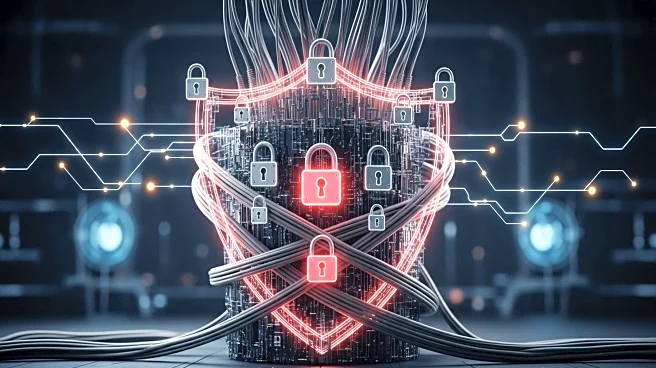What's Happening?
In a recent interview on 60 Minutes, General Tim Haugh, who has recently retired, revealed alarming details about China's extensive hacking activities targeting U.S. computer networks. According to Haugh, the scale of the intrusion is unprecedented, and he suggests that the motivations behind these cyberattacks are strategic, aiming to undermine U.S. national security and technological infrastructure. The interview highlights the growing concerns over cybersecurity threats posed by foreign entities, particularly China, and the implications for U.S. defense and intelligence operations.
Why It's Important?
The revelations by General Haugh underscore the critical need for enhanced cybersecurity measures and policies to protect U.S. interests. The hacking activities attributed to China could have significant implications for national security, potentially compromising sensitive information and disrupting critical infrastructure. This situation calls for urgent attention from policymakers and cybersecurity experts to develop robust defenses against such threats. The broader impact on U.S.-China relations could also be profound, influencing diplomatic and trade negotiations as cybersecurity becomes a central issue.
What's Next?
The U.S. government and cybersecurity agencies are likely to intensify their efforts to counteract these threats, potentially leading to increased funding for cybersecurity initiatives and collaboration with private sector experts. There may also be diplomatic repercussions, with the U.S. seeking to address these concerns through international forums and bilateral discussions with China. The focus will be on preventing further intrusions and safeguarding national security interests.
Beyond the Headlines
The ethical and legal dimensions of cybersecurity are becoming increasingly complex, as nations grapple with the balance between security and privacy. The hacking incidents raise questions about international norms and the need for global cooperation to establish rules governing cyber warfare and espionage. Long-term, this could lead to shifts in how countries approach cybersecurity, emphasizing collaboration and shared standards.









